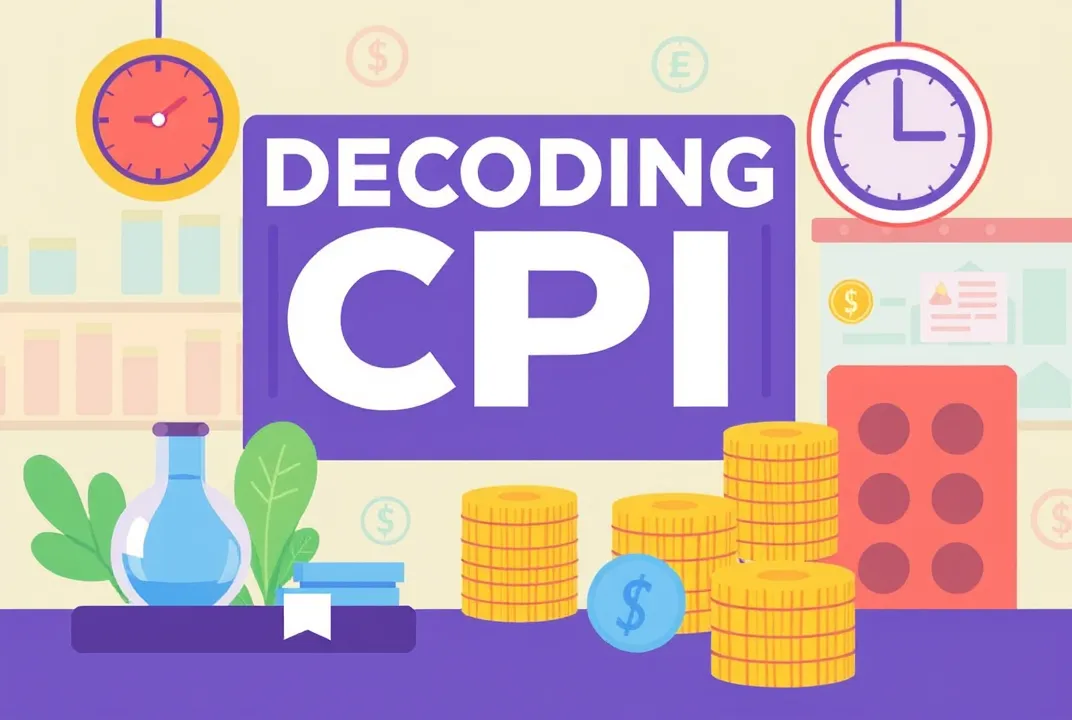Understanding the CPI Report: A Lens into Your Financial Future
In 2023, as consumers grapple with fluctuating prices and shifting economic landscapes, the Consumer Price Index (CPI) report has emerged as a pivotal tool for understanding inflation and its impact on our wallets. The latest CPI report, released in October 2023, paints a vivid picture of the current economic climate, reflecting both the challenges and the potential pathways to financial stability.
The Importance of the CPI Report
The CPI is an economic indicator that measures the average change over time in the prices paid by urban consumers for a market basket of consumer goods and services. This report provides critical insights into how inflation is impacting everyday expenses, from groceries to rent, and serves as a barometer for economic health. A rising CPI often signals increasing inflation, which can erode purchasing power, while a stable or declining CPI can indicate a more favorable economic environment.
What the Latest Report Reveals
According to the October 2023 CPI report, inflation has slightly cooled compared to the earlier part of the year, but certain categories continue to surge. Food prices, for instance, have seen a notable increase of 6.5% year-over-year, driven by supply chain disruptions and increased agricultural costs. This rise in food prices affects families across the nation, pushing them to reconsider their grocery budgets and meal planning strategies.
Shelter costs also reported a significant uptick, with rents climbing by 4.8%. This poses a conundrum for many renters and prospective homebuyers, exacerbating the affordability crisis in numerous metropolitan areas. The stark reality is that as shelter costs rise, disposable income shrinks, leaving consumers with less leeway for savings and discretionary spending.
The Broader Economic Context
The CPI report does not exist in a vacuum; it is influenced by a myriad of factors including monetary policy, geopolitical events, and consumer behavior. The Federal Reserve, keenly aware of inflation's effects, has been adjusting interest rates in an attempt to stabilize the economy. As of October 2023, the Fed has maintained a cautious stance, opting for a wait-and-see approach as it monitors inflation trends.
In this context, the CPI serves as a critical feedback loop; its fluctuations can prompt immediate reactions from policymakers, businesses, and consumers alike. For instance, if inflation remains high, the Fed may be forced to raise interest rates further, which could lead to increased borrowing costs for consumers.
How CPI Affects Your Wallet
Understanding the CPI report is essential for consumers to navigate their financial futures effectively. Here are some real implications:
Budgeting and Spending Adjustments
As prices rise, consumers need to revisit their budgets. For example, families may need to allocate more funds toward essentials like food and housing, impacting their ability to save for retirement or invest in experiences. Understanding the areas where inflation is hitting hardest can help households make informed decisions about discretionary spending.
Investment Strategies
For investors, the CPI report can influence market strategies. Inflation can erode the value of fixed-income securities, such as bonds, prompting investors to consider inflation-protected securities or other asset classes that tend to perform well during inflationary periods, such as stocks or real estate.
Salary Negotiations
With the ongoing wage discussion gaining momentum, employees might leverage CPI data during salary negotiations. Understanding the cost of living increases driven by inflation can empower workers to advocate for fair compensation that aligns with rising prices.
The Behavioral Impact of Inflation
Inflation doesn't just affect budgets and investments; it can also shift consumer behavior. Many shoppers might adopt a more frugal mindset, opting for generic brands or shopping at discount retailers to stretch their dollars further. This change in shopping habits could lead to long-term trends in retail and manufacturing, as businesses adjust to evolving consumer preferences.
Conclusion: Preparing for the Future
As the CPI report continues to release updates throughout the year, staying informed will be crucial for consumers looking to safeguard their financial well-being. Understanding inflation trends allows individuals and families to adapt their budgets, reassess their investment strategies, and engage in informed salary negotiations.
While the landscape may appear daunting with rising prices, knowledge is power. By decoding the CPI report and recognizing its implications, consumers can make proactive decisions that will help them weather economic fluctuations. In 2023, as we navigate these complex financial waters, let the CPI serve not just as a number, but as a guidepost toward a more secure financial future.


 Decoding CPI: How Consumer Price Index Impacts Your Everyday Finances
Decoding CPI: How Consumer Price Index Impacts Your Everyday Finances
 Justin Trudeau: Leadership Challenges and Future Aspirations
Justin Trudeau: Leadership Challenges and Future Aspirations